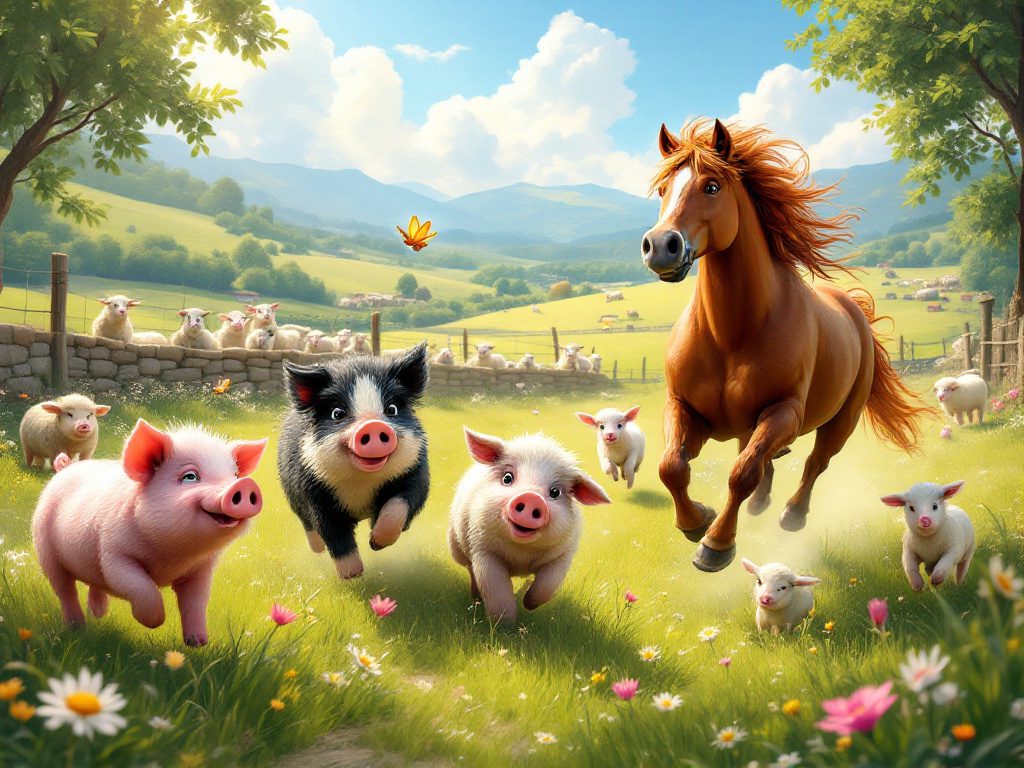Star Power Meets Political Allegory: A New Chapter for Animal Farm
Picture this: an all-star cast—Seth Rogen, Glenn Close, Woody Harrelson—gathers not for a glitzy Hollywood comedy but for a retelling of one of literature’s most scathing critiques of authoritarian power. After more than a decade in development, Andy Serkis is finally bringing his long-gestating animated adaptation of George Orwell’s Animal Farm to the screen. If you thought animated features were just for kids or lighthearted laughs, it’s time to reconsider.
With Serkis at the helm, this adaptation occupies rarefied territory: an intersection of artistic ambition and urgent political relevance. First announced in 2012, the project has grown into a cinematic statement with backing from industry juggernauts—Cinesite for animation, the creative muscle of director Matt Reeves and Woody Harrelson as executive producers, and an A-list voice cast. Add to that the artistic vision of Serkis himself, a pioneer in motion capture acting and acclaimed for his work in ‘The Lord of the Rings’ and ‘Planet of the Apes’ franchises, and the result is a production brimming with creative credibility and anticipation.
The cast alone is enough to generate headlines. Seth Rogen voices the cunning lead pig Napoleon, while the supporting ensemble includes not only household names like Glenn Close and Woody Harrelson but also new generation favorites—Gaten Matarazzo from ‘Stranger Things’ and Iman Vellani, Marvel’s newest star. Such a diverse collective offers more than name-brand appeal; it hints at a film unafraid to tackle difficult themes while reaching a wide audience. After all, it’s not every day an animated feature hopes to spark conversation about ideology, corruption, and resistance.
Modernizing Orwell: New Narratives for a New Age
Serkis’ team is not content with rote fidelity to Orwell’s original text. According to the filmmakers, screenwriter Nick Stoller has woven new threads into the 1945 classic, including a central relationship between Napoleon and a younger pig who is at first seduced—then sickened—by the corrupting machinery of power. This innovation aims to deepen the work’s contemporary resonance. Harvard literature professor Elaine Parsons explains, “Fresh character dynamics—even in hallowed texts—allow stories like Animal Farm to speak more clearly to generations forged in different fires. Today’s audiences crave multidimensional storytelling that reflects their own ethical and social struggles.”
The decision to reshape the narrative reflects a broader understanding: the lessons of Animal Farm are not locked in the Soviet past. The dangers of demagoguery and propaganda still loom large, from the rise of far-right populism worldwide to the growing skepticism toward democracy’s core institutions. As former U.S. Secretary of State Madeleine Albright wrote in Fascism: A Warning, “The temptation to submit to a ‘strongman’—someone who claims to speak for a people, while consolidating personal power—is always present.”
What makes this adaptation so intriguing is its pursuit of accessibility without dilution. Serkis himself has publicly stated his team’s intent to create “an emotionally powerful, humorous, and relatable” adaptation for all ages—a tall order when the source material is famously dark. Preserving the moral complexity while inviting a younger generation to engage with questions of social justice, betrayal, and collective action appears to be a guiding principle. Animation, long dismissed by some as too soft for mature themes, has repeatedly proved otherwise, from ‘Persepolis’ to ‘Waltz with Bashir.’ Now, Animal Farm is poised to join that critical tradition.
“Fresh character dynamics—even in hallowed texts—allow stories like Animal Farm to speak more clearly to generations forged in different fires.” — Harvard professor Elaine Parsons
The Relevance—and Urgency—of Revisiting Animal Farm Now
Why retell Orwell’s allegory in 2025? The answer is uncomfortably clear. Democracies worldwide have witnessed a rise in anti-democratic rhetoric, growing economic inequality, and the weaponization of misinformation. The risks Orwell chronicled—the betrayal of revolutionary ideals, the emergence of new ruling classes, the corrosion of collective purpose—feel alarmingly familiar today.
Serkis’ adaptation stands as a warning and a call to reflection. The choice to update the narrative with modern emotional beats and character arcs is not art-for-art’s-sake; it’s a response to the anxieties and hopes of a generation raised amid polarization and disillusionment. “We were taught that the arc of history bends toward justice,” observes journalist Jelani Cobb, “but history is written—and bent—by those who risk speaking up against tyranny.”
Intent on making these lessons accessible, Serkis employs not only vivid animation but also a tone that balances the bleakness of Orwell’s original with moments of humor and relatability. Animation producer Connie Nartonis Thompson, honored for darkly whimsical fare like ‘Frankenweenie,’ provides invaluable experience here: “Animation gives creators the freedom to render difficult realities with imaginative force, building empathy rather than distance.”
As the 2025 release nears, progressives may find in this adaptation both a mirror and a rallying cry: a pop culture intervention reminding us that, even in dark times, resistance and reform remain possible. Laverne Cox, one of the cast’s boldest voices for inclusion, recently commented, “Stories like Animal Farm encourage us to challenge the systems that promise equality but deliver oppression. That’s a message no society can afford to ignore.”
Orwell’s warning—”All animals are equal, but some animals are more equal than others”—is no mere relic. Thanks to Serkis and his visionary team, Animal Farm lives again, ready to speak to your moment, your choices, and your hopes for the collective good. Will this new adaptation move hearts and minds as Orwell once did, or simply entertain? The stakes, as ever, are not only artistic but civic.

